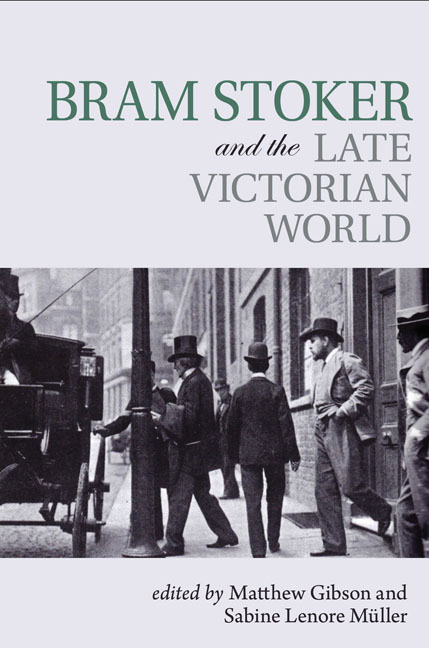5 - Communication Technologies in Bram Stoker's Dracula: Utopian or Dystopian?
Summary
Introduction
Bram Stoker's 1897 novel Dracula opens itself to two distinct interpretive readings: one utopian, in which a fellowship known as the Crew of Light vanquishes the forces of evil; and one dystopian, in which heroes are fumbling and faulty and evil is never fully purged or vanquished, but rather disseminated into the vampiric dust motes that are the reader's last glimpse of Dracula. These two interpretations are fully linked to—in fact, depend upon—the reader's utopian or dystopian reading of technology, specifically communication technologies. Dracula is a text that examines and employs the most cutting-edge writing technologies of its day, from shorthand and phonographs to telegrams and typewriters. While a utopian reading celebrates the triumph of these technologies over the vampire, dystopian readings critique these very technologies as inherently vampiric.
It is easy to imagine an original utopian reception of Stoker's novel by a Victorian audience that is traditionally assumed to have unilaterally embraced the promises of the new steam era and its attendant scientific marvels, a culture that presumably delighted in the use of such technology to forestall the return of an age-old repressive foreign feudal lord. But Stoker's novel also appears at a historical moment on the verge of an emerging modernist wave of dystopian fiction, including Jules Verne’s 1879 The Begum's Fortune and H. G. Wells's 1898 War of the Worlds. In many ways it ushers in an era dominated by a humanistic fear of tyranny. In its portrayal of the vampire as an Eastern threat to Western liberty, Dracula anticipates twentieth-century dystopian fiction. More particularly, Stoker's depiction of communication technologies inspires readings of the text itself as dangerous, even deadly.
In Dystopian Fiction East and West: Universe of Terror and Trial, Erika Gottlieb observes that “fear of the emergence of a totalitarian regime is the major component of the dystopian impulse.” As an Eastern European feudal lord who aims to infect and dominate Western culture, Count Dracula bears some affinities with the threat of fascism that Gottlieb identifies as dystopic. For Gottlieb, utopian fiction is characterized by faith in the values of justice, democracy, and enlightenment. While most contemporary reviewers of Dracula accept the triumph of the modern Crew of Light over the ancient vampire, several more recent critics have examined textual nuances that suggest otherwise.
- Type
- Chapter
- Information
- Bram Stoker and the Late Victorian World , pp. 101 - 120Publisher: Liverpool University PressPrint publication year: 2019



